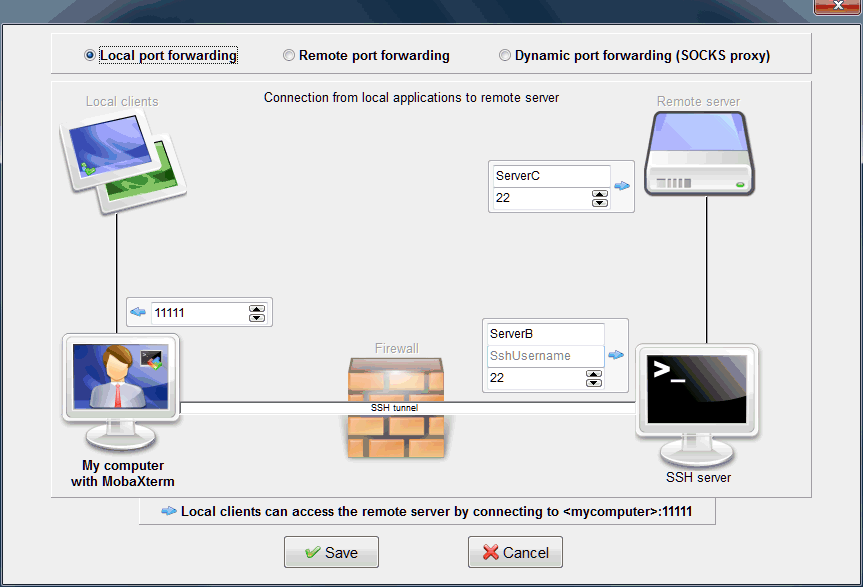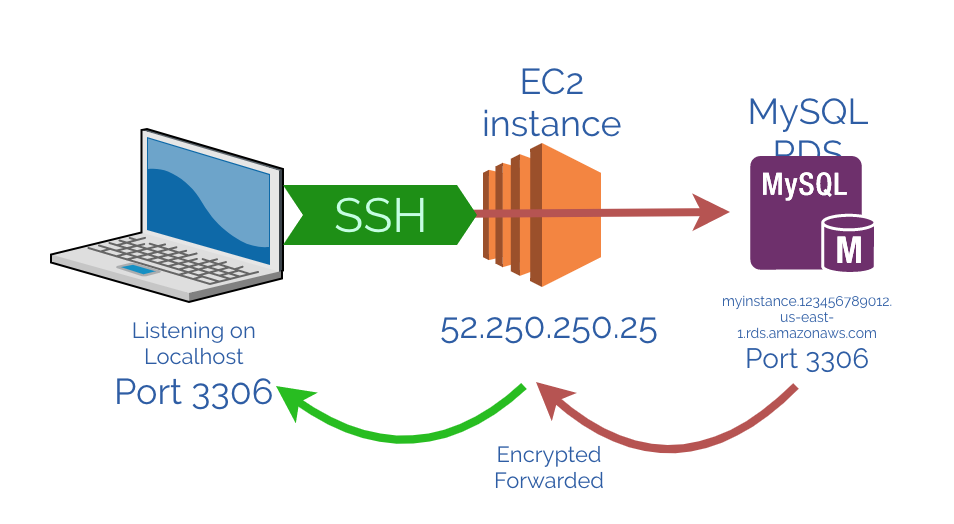

This can be useful to bypass remote network issues or restrictive firewalls. With a tunnel active and traffic proxied through the tunnel, that traffic will appear to be coming from your remote server instead of your local machine. All of this rerouted traffic is securely encrypted as it travels between your local machine and the remote server thanks to SSH.

For some uses, there may be an easier way to securely route your traffic through a remote server (like your VPS or dedicated server).Īn SSH tunnel is another method of rerouting some or all traffic from one location (like your local computer) through another (your remote server). The issue is that setting up and configuring a VPN can be time consuming and complicated. If you have a VPS or dedicated server, you could even run a VPN service from your server. It allows you to forward traffic from a local port to a remote server, where it is then forwarded to another destination.įor example, let’s say you want to access a remote database server that only allows connections from localhost.VPNs are powerful tools and can help keep your network traffic secure. Local port forwarding is the most common type of SSH tunneling. This can be useful if you want to access the internet from a location where certain websites or services are blocked, or if you want to protect your online privacy by routing all of your traffic through an encrypted tunnel. Dynamic port forwarding: With dynamic port forwarding, you can create a SOCKS proxy server that routes all of your internet traffic through a remote server.This can be useful if you want to access a service that is only available on your local machine, such as a printer or file server. Remote port forwarding: With remote port forwarding, you can forward a port on a remote server to a port on your local machine.

This can be useful if you want to access a service that is only available on a remote server, such as a database or web server.

SSH tunneling, also known as SSH port forwarding, is a technique that allows you to use this secure connection to encrypt your internet traffic and protect your privacy. SSH (Secure Shell) is a network protocol that allows you to securely access and control a remote computer.


 0 kommentar(er)
0 kommentar(er)
